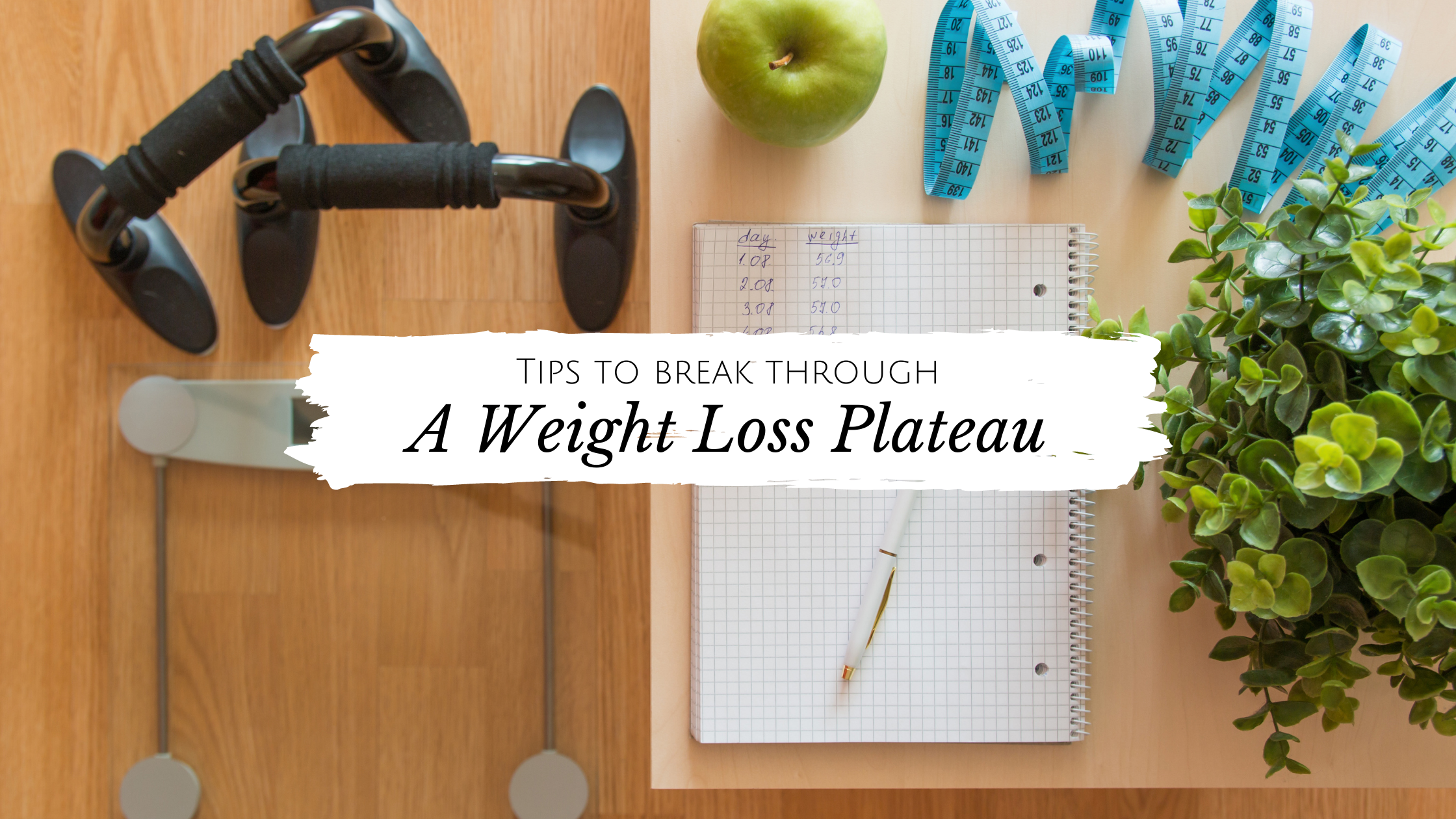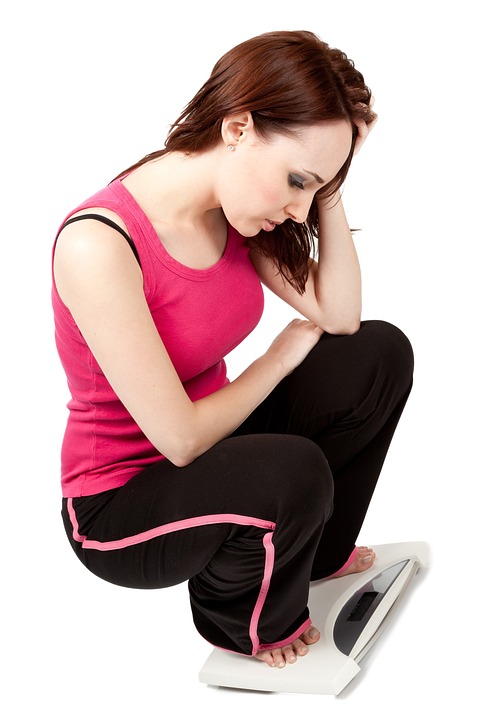
08 Apr Tips to break through a weight loss plateau!
Meet Lynn. Lynn has been eating ‘low carb’ for months and didn’t see any downward movement on the scale. She was eating very little and didn’t think she could eat any less to feed her body.
She was frustrated.
She was ready to give up.
She felt like she was gaining weight, just looking at food!
Unfortunately, this is more common than you think!
People get frustrated when they hit a weight loss plateau, particularly when they are on a ‘low carb’ diet.
First of all, let’s discuss the term ‘low carb’. Often, when people usPeople get frustrated when they hit a weight loss plateau, particularly when they are on a ‘low carb’ diet. First of all, let’s discuss the term ‘low carb’. Often, when people use this term, they are really talking about a ‘low grain’ diet, rather than a low carb diet. They have eliminated pasta, bread and most processed foods, which is great!
Carbohydrates are one of the three macronutrients, along with protein and fat, which make up most foods – including fruits, vegetables, grains, beans, legumes, milk and milk products, and all processed foods containing added sugar, like candy, soda, cakes, cereal, etc. Fruits and vegetables provide good sources of complex carbs, so we don’t want to remove them totally from our diet. Instead, we want to ditch the sugary, high carb foods that cause blood sugar spikes, inflammation and gut damage and limit our intake of processed flours.
So, if you have been following a low grain, low sugar and low/no processed food diet and the pounds are not melting away, check out these tips:
1) Water. Often we mistake hunger for thirst. Water is one of the most important nutrients our body needs and approximately 60% of our body is water. Water helps with digestion and elimination, but should not be taken with meals. It is suggested that you drink 50% of your body weight in ounces of water each day. For example if you weigh 140 pounds, you should strive to drink 70 ounces – or 8-9 eight ounce glasses each day. Why not try adding 1-2 eight ounce glasses of water each week until you reach the suggested level?
2) Nuts & seeds. Nuts & seeds are healthful and provide good fats and nutrients, but be careful with the portions. A handful is a serving and if you eat too many, they will pack on the pounds!
3) Fruit. Are you eating too much fruit? I suggest a 1:3 ratio of fruits to vegetables and when trying to lose weight, women should limit to 2 fruit servings/day and men to 3 servings / day.
4) Fats. This is a tricky one as often people are afraid to eat fat. Our body needs fat to survive and you want to consume heathy fats like avocado, olive oil and coconut oil and avoid vegetable oils like corn, soy and canola. Be conscious of the amount of these fats you are consuming. A serving size is about 2 teaspoons and you should consume approximately one serving at each meal.
5) Low Carb Sweets. Just because something is ‘low carb’- it doesn’t mean you should eat it every day. Low carb cookies and cakes contain lots of sugar, so consume them every once in a while, rather than every day. They are still treats, so indulge accordingly!
6) Planning. It’s possible to make healthy choices on the go these days, but it’s much easier if you plan ahead. Have ‘go to’ options in the house that are easy to take on the run. If you plan ahead and have the right foods on hand it’s easy to make healthy choices. Pack a few snacks the night before and stash a few packs of nuts, seeds or dried fruit in your car for emergencies!
7) Sleep loss. Studies have shown that sleep loss has been associated with increased appetite and over eating. Sleep loss can also interfere with blood sugar levels and cause the body to produce more insulin, which can lead to body fat storage and insulin resistance. Experts recommend 7+ hours of sleep per night for adults.
8) Stress. Stress causes our body to release cortisol and high levels of cortisol causes fat stores which can be deposited in our midsection. Those with a higher waist to hip ratio (i.e., belly fat) are at a greater risk of developing type 2 diabetes and cardiovascular disease. Try this simple 2 minute exercise a few times a day to reduce your stress!
9) Movement. Movement and exercise are great whether you are trying to lose weight or not. After a while, your body will adapt to any exercise. The more fit you are, the faster your body adapts to the changes. You need to surprise your body by changing things up – alternative the amount of weight, change exercises and choose different forms of cardio – elliptical, running, spin, jumping rope, swimming, etc. High intensity interval training has been shown to burn fat in less time and revs up your metabolism, so you burn more calories for up to 24 hours.
So, if you have hit a weight loss plateau, check out the tips above and see if you need to make any changes. Be patient and persistent and your body will respond. Unfortunately, contrary what the media will lead you to believe – there is no magic pill! Thanks to Dr. KellyAnn Petrucci for the inspiration for this blog.
For more information about weight loss, check out this article from BodyNutrition where I am featured with 38 other experts in a panel where we weigh in on how to avoid gaining weight during the pandemic.
There is never a one-size fits all approach to diet and lifestyle. It’s possible your hormones are impacting your weight – or that you are not eating enough, so your body has moved into ‘starvation mode’ – which leads to more fat storage. If you feel like you are doing everything right and the scale is not budging, please click below to schedule your FREE 20 minute weight loss strategy call!
It’s possible your hormones are impacting your weight – or that you are not eating enough, so your body has moved into ‘starvation mode’ – which leads to more fat storage. If you feel like you are doing everything right and the scale is not budging, please click below to schedule your FREE 20 minute weight loss strategy call!
If you are feeling like Lynn above, you will be happy to know after working together, she started releasing weight and more importantly she started feeling more energized, is sleeping better and is motivated to exercise.
What do you have to lose – except that extra weight you’ve been trying to ditch!
If you believe you are doing everything right, but the scale isn’t budging, schedule your free 20 minute strategy call with me: elizabeth@puresimplewellness.com




Caroline Gosselin
Posted at 10:51h, 04 AugustHave been definitely feeling like I am at a plateau lately! Will try more water and different workouts. Thanks!
Elizabeth Girouard
Posted at 10:51h, 04 AugustThat’s great Caroline. Definitely keep me posted on how it goes! Thanks for posting.
Melanie
Posted at 10:51h, 04 AugustGreat blog post, Elizabeth. Just wondering about the water. Why do you say that you should not drink water WITH a meal? Thanks.
Elizabeth Girouard
Posted at 10:52h, 04 AugustGreat question Melanie! As I mentioned, our digestion system needs water for digestion and elimination. However, if we are drinking too much water with meals, it can dilute the stomach acid and bile which are needed to properly digest your food. Also, cold water can slow down your digestion and can cause cramping. So, it’s best not to drink a lot of water 15 minutes before you eat and at least 60 minutes after you eat. The digestion process starts in the mouth with the saliva, so it’s better not to water it down and let the body’s natural processes do their job. Hope that helps!
Steven Fleming
Posted at 10:53h, 04 AugustWeight gain in really frustrating and most of the people are suffering from weight gain issues. Due to lack of proper diet plan and physical workout people are easily suffering from unwanted weight gain. So it is quite better to looking for effective tips on weight loss and I hope with the help of this above article we are able to reduce some amount of weight easily.
Elizabeth Girouard
Posted at 10:54h, 04 AugustThanks Steven! Often by making a few tweaks to what we have been doing helps shift the weight loss plateau. I’m glad you like the tips I have provided!